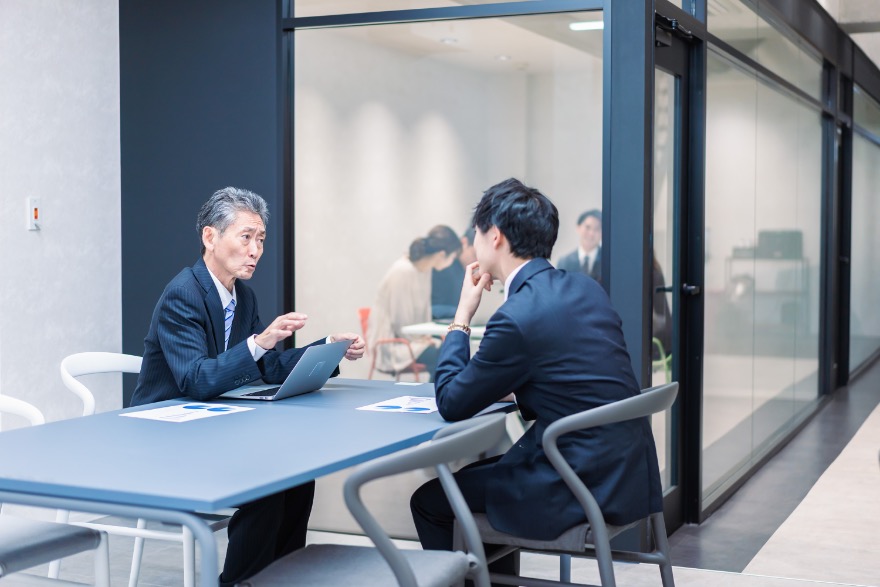The Mindset for Success in Your Internship in Japan!
Internships in Japan are an exciting opportunity to gain professional experience while immersing yourself in a unique work culture. No matter if you’re placed in a Japanese company or an international organization based in Japan, the lessons you take away can shape both your career and personal growth.
But to truly benefit, it’s not enough to simply “show up” and complete tasks. How you approach the experience, your mindset, habits, and willingness to learn, makes all the difference. This post offers ways on how to make your internship in Japan successful and rewarding: from building strong relationships and staying flexible to reflecting on your growth and using the experience as a springboard for future opportunities!
I. Build Relationships and Trust
One of the most valuable things you can do during your internship in Japan is to focus on relationships as much as the tasks themselves. Workplaces here, Japanese or international, tend to value trust and teamwork highly. An intern who makes an effort to connect with colleagues is remembered more than one who simply finishes assignments.
This doesn’t mean forcing yourself into every conversation. Even small gestures can make a difference: greeting people properly each morning, thanking coworkers when they help you, or joining in when the team goes for lunch or after-work outings. Casual chat over coffee or a simple otsukaresama desu at the end of the day helps show that you respect the shared effort of the workplace and that you’re grateful for the opportunity to be part of their team.
Strong relationships can also shape what comes after. Supervisors who see you as reliable and easy to work with are more likely to write strong recommendation letters or even mention you for future openings. Colleagues who enjoyed working with you may stay in touch, becoming part of your professional network in Japan.
In a competitive job market, these connections can carry just as much weight as the skills you gain, giving you a real advantage if you decide to pursue longer-term work in Japan.

II. Stay Flexible and Proactive
No internship ever goes exactly as expected, and this is especially true in Japan. Even with a clear role description, day-to-day work may shift depending on what the team needs most. These situations can feel challenging at first, but they are also valuable chances to show that you can adapt.
In Japanese workplaces, it is quite common for employees to assist with responsibilities that are not strictly part of their official role. This reflects a group-oriented mindset where the focus is less on individual job descriptions and more on ensuring that the team as a whole functions well. For interns, stepping in with a helpful attitude signals that you understand this approach and are willing to contribute to the group effort.
That is why flexibility is so highly valued. In a culture where teamwork and harmony are central, being able to adjust quickly makes you a more dependable colleague. Instead of seeing an unexpected assignment as “not part of your role,” try approaching it as an extra opportunity to grow and learn.
Proactivity is just as important: interns who only wait for instructions may blend into the background, but those who look for ways to contribute stand out. Show that you’re adaptable and willing to support wherever needed.
For example, if you notice another team could use an extra hand and you have the time, step in and help, even if it’s not part of your original role. Small actions like this show that you care about the bigger picture, not just your own checklist.

III. Be Reliable and Professional
In any workplace being dependable matters, but in Japan, reliability is viewed as a reflection of character. Being punctual, meeting deadlines, and following through on what you say you show respect for the time and trust of others. Even small lapses, like arriving a few minutes late or forgetting to reply to an email, can make a bigger impact here than you might expect.
In fact, a survey of Japanese HR representatives found that more than 70% pay close attention to an intern’s manners and demeanor. That means reliability and professionalism are not treated as a “basic” but as an essential part of the impression you leave. Delivering quality work consistently, no matter how small the task, is how you show that you can be counted on.
Professionalism builds on that reliability; it’s reflected as much in your behavior and attitude as in the work you deliver. Professional interns communicate clearly and respectfully: they respond to emails on time, use proper greetings, and show care in how they interact with others. They also take ownership of their work, even small tasks deserve attention to detail, because in Japanese workplaces diligence signals respect.
Another thing you can do to show you are reliable and professional is to practice 報・連・相 (Hō-ren-sō: report, inform, consult): report your progress regularly, inform supervisors of any updates or issues quickly, and consult with them when you run into challenges. This approach shows that you’re accountable and that you understand how teams stay aligned in Japan.
When reliability and professionalism are combined, they reinforce one another. Reliability builds trust by showing that you deliver; professionalism ensures that your behavior and communication make others comfortable relying on you. The result is that you move from being seen as “just an intern” to someone who brings value to the team.

IV. Reflect on What You’re Learning
Amid the busy routine of an internship, it’s important to pause and reflect on your experience. By regularly asking yourself what you’ve learned and how you’ve grown, you’ll maximize the value of your time in Japan.
At the end of each week, take stock of new things you encountered. What new skills did you pick up? What challenges did you overcome? What differences in Japanese work culture did you observe, and how did you adapt? Writing down a few key takeaways can help solidify them in your mind, and it also creates a record you can look back on to see your progress from the first days to the final weeks (and later, it helps when updating your resume!).
A Japanese internship might only last a short time, but you may be surprised by how much you grow professionally and personally. And by taking note of these changes, you reinforce them and encourage yourself to keep pushing until the very end.
Reflection isn’t just about positives, though. It’s also about identifying areas to improve and grow. If you realize, “I felt lost during that technical discussion,” that’s a clear sign of where you can grow. In fact, this habit mirrors the Japanese concept of kaizen, or continuous improvement: noticing what can be done better and adjusting.
Remember, the end of your internship will come faster than you expect. Taking time along the way to absorb lessons ensures you won’t leave thinking, “I wish I had appreciated X more.” Instead, you’ll be able to say, “I learned X, Y, and Z, and now I know how I’ll use them going forward.” That kind of clarity is gold for your future job search and career decisions!

V. Ask for Feedback
One of the fastest ways to grow during your internship in Japan is to ask for feedback. It may feel intimidating at first, but by proactively seeking it, you show professionalism and a desire to improve, qualities supervisors respect. Plus, you’ll get valuable input to help you grow!
Instead of waiting until the very end of your internship to ask, “How am I doing?”, make feedback part of your routine. Checking in after a task or project and asking if there’s anything you could improve for next time, shows you’re engaged and willing to adjust. Small questions like this open the door to constructive advice.
This is especially important in Japan, where feedback can often be more subtle than what you might be used to. Supervisors may not point out mistakes directly, often out of politeness or not wanting to put you on the spot. That’s why inviting feedback yourself makes such a difference, it shows humility and initiative, two qualities that are highly respected in Japanese workplaces.
Once you receive feedback, the next step is how you use it: feedback is only as valuable as the action you take. If your supervisor suggests being more concise in your reports, apply that advice to your next one. Showing that you can take input and immediately put it into practice proves you’re adaptable and serious about learning.
And don’t forget, feedback isn’t only about correcting mistakes. It’s also a way to recognize what you’re doing well. Knowing your strengths helps you build confidence and repeat those behaviors in future roles.
In the end, asking for feedback is a sign of a proactive and growth-oriented intern. It might feel a bit intimidating to ask, “How can I do better?” but the benefits far outweigh the awkwardness. You’ll accelerate your learning, avoid second-guessing expectations, and show your colleagues that you’re here not just to pass the time, but to actively better yourself. That mindset is what can turn a good internship into a truly great one!

VI. Use the Internship as a Career Springboard
Interning in Japan can be much more than a temporary work experience, it can also be a launchpad for your future career. If you approach it strategically, you’ll leave not only with new skills but also with networks, achievements, and clarity that shape your next steps.
One of the biggest advantages of internships in Japan is the people you meet. Colleagues in your team, managers, maybe clients or other interns can become part of your professional network. Don’t underestimate the power of these relationships for your career and take the time to build connections and leave a positive impression.
In Japan, recommendations carry a lot of weight and it’s not unusual for an intern who earned trust to receive a strong reference letter, an introduction to a partner company, or even a direct referral during job hunting. Even if the internship doesn't end with a direct job offer, this kind of support can give you a huge advantage in a competitive job market.
Your experience in Japan also becomes a powerful story for future applications. Completing an internship in Japan shows that you are internationally minded, can handle new environments, and possibly work in a second language. These are a plus in many fields.
One of the less tangible but extremely valuable outcomes of an internship is figuring out your own career preferences. Use this time to notice what excites you and what doesn’t; many interns finish their time in Japan with a clearer idea of the type of role or company they want to pursue, or avoid, in the future.
By being intentional (networking, reflecting, documenting your achievements, and keeping an open mind), you can turn a short-term internship into long-term benefits. Many interns who come to Japan leave not only with great memories but also with a clearer career direction, a set of accomplishments to be proud of, and sometimes even a job offer or a professional reference in hand!

Shaping Your Future

Internships in Japan can be a truly life-changing experience if you approach them with the right mindset and effort. Remember: an internship is what you make of it! If you show up each day eager, respectful, and ready to learn, you’ll leave with much more than just a bullet point on your resume. You’ll have new mentors, friends, a clearer career path, and perhaps a foot in the door for a job. Even the challenges will become stories of growth you carry forward.
So, embrace the adventure, say “yes” to opportunities to engage with your colleagues, don’t be afraid to ask questions or ask for help, and soak up every lesson. If you do all this, you’ll not only make the most of your internship in Japan, you’ll also make an unforgettable impression on those around you. And who knows, today’s mentor could be tomorrow’s recommender, and today’s internship desk could be the first step towards your dream job!
🎯 Turn Advice into Action!
An internship in Japan is what you make of it and here is the perfect place to grow your skills, expand your network, and shape your career. Don’t just read about it, join our program and experience it for yourself! Or if you’d like more guidance first, reach out to us and our team will be happy to help!







